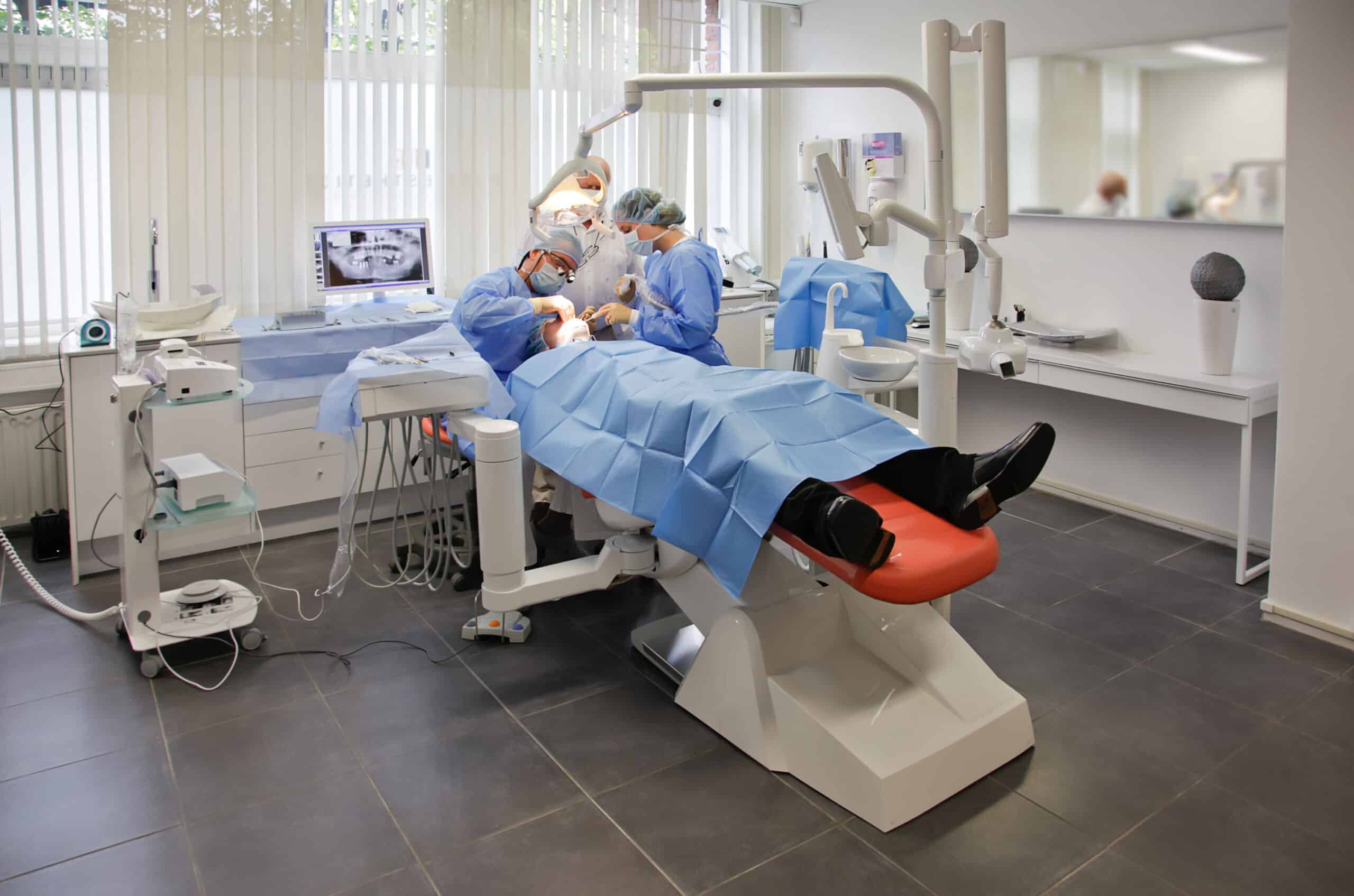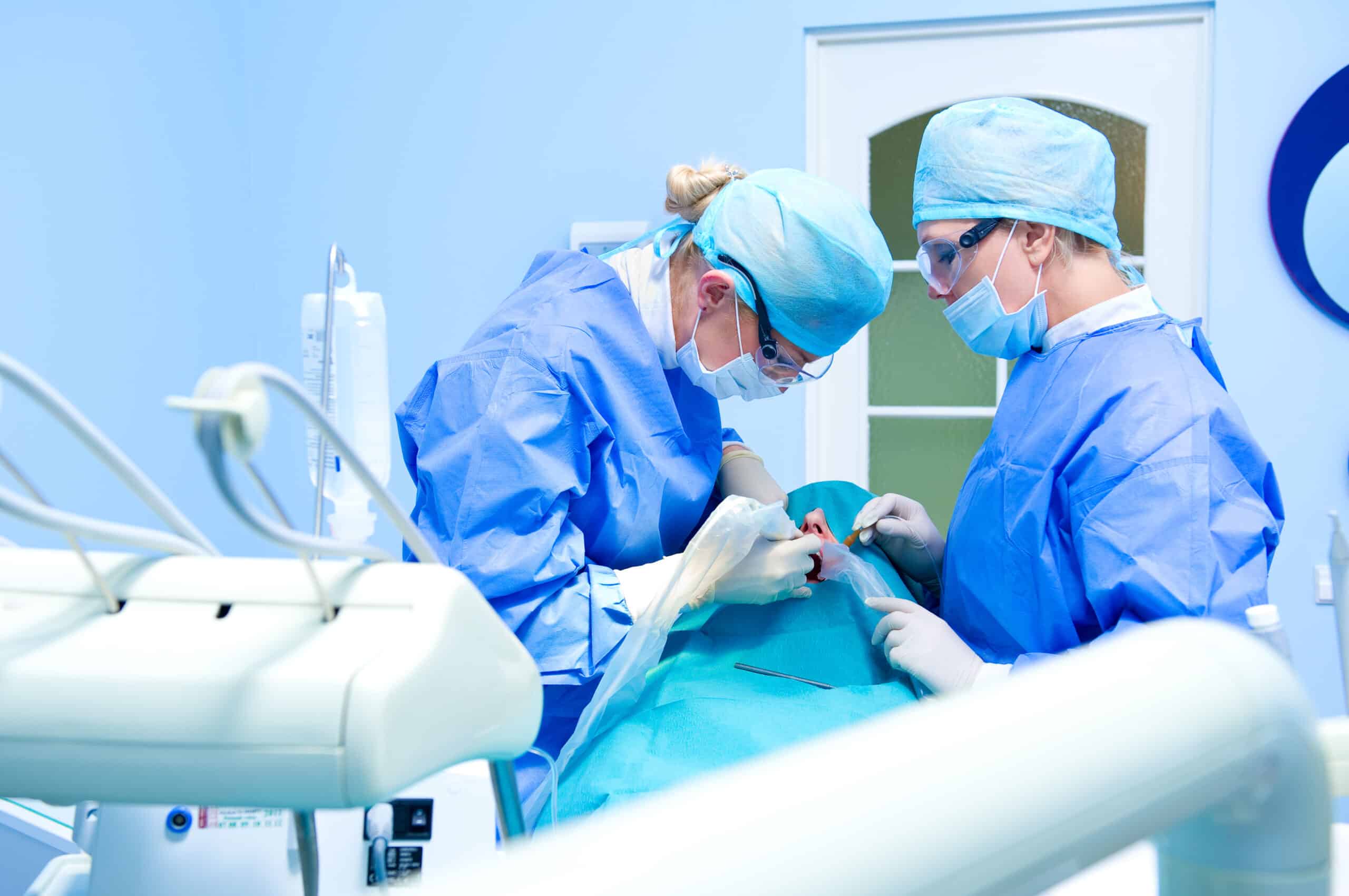Although we are used to our dentist just teaching us the proper hygiene routines to ensure oral health, there are also certain practices that should be avoided.
Although we may not be aware of it, there are bad dental habits that can be very harmful to oral health.
And we are not referring exclusively to daily brushing, but to actions that can cause the appearance of various oral diseases, such as caries or tooth wear, but also tooth breakage.
If you want to know what these bad dental habits are and how you can avoid them, read on.
Risk of fracture and damage to the gums
The breakage – partial or total – of teeth can occur as a result of trauma, although there are certain habits that trigger the same result.
For example, how many times have you cut a piece of tape with your teeth when you didn’t have a pair of scissors handy?
Although it seems like a completely harmless action, the truth is that using the pieces as if they were tools carries the risk that they will end up breaking.
The American Dental Association (ADA) also points out the danger of accidentally swallowing something you are holding in your mouth, such as the cap of a bottle after having opened it with your teeth.
Other bad dental habits include biting on very hard food, such as kikos or ice cubes, or any material, such as toothpicks or pens.
Biting ice is bad for teeth
Enlarge image
BITTING ON ICE
These practices increase the likelihood of breaking a tooth, as well as causing dental fillings to fall out.
In fact, the habit of using the well-known toothpick is one of the most common and famous.
For many people, it is normal to use it to remove food debris that has remained between the teeth.
However, due to the friction of this pointed element, it is possible to cause gum recession and develop periodontal problems.
Remember that the best way to remove dirt between teeth is to use interdental brushes and dental floss.
Oral hygiene techniques
It is just as important to maintain proper oral hygiene routines as it is to know the correct brushing technique.
To ensure the hygiene of the mouth, it is important to brush for 2 minutes after each meal, in addition to complementing this action with other elements: mouthwashes, dental floss, etc.
The brush, whether electric or manual, should make gentle movements and never exert too much pressure to avoid gum retraction and inflammation.
In addition, in order to avoid bad oral hygiene habits, it is advisable to choose a toothbrush with soft bristles so that it does not hurt and cause bleeding.
Consult with your specialist
If you have any doubts about the brushing technique you should follow, ask the dental hygienists at your dental clinic.
How to solve unintentional bad dental habits
Although we have emphasized practices that we do consciously, as a matter of routine, the truth is that there are others that are done involuntarily.
Bruxism
One of the most widespread is teeth grinding, especially during sleep hours.
This grinding of the teeth, known as bruxism, causes serious damage to the tooth surface and in most cases the person experiences great wear and tear.
It also leads to an accumulation of tension in the neck that causes headaches and earaches.
Fortunately, bruxism can be treated by the use of an unloading splint.
Nail biting
Nail biting, a widespread habit among the population, creates problems of dental deformation.
In addition, it not only compromises oral health, but can also lead to infections due to bacteria.
To bite the nails it is necessary to force the position of the jaw continuously over time, causing various deformities: from diastemas to crowded teeth.
As a solution, the person can choose to use nail polishes that have a bitter taste.
Stop biting your nails
Enlarge image
NAIL BITING
Snacking between meals
Mid-morning coffee, a sweet treat or just a sandwich when you get to the office can satisfy the munchies until lunchtime.
However, this snacking between meals can lead to tooth decay, as we are used to brushing after main meals only.
In addition, by eating a smaller amount of food – if we eat, for example, a piece of fruit – saliva levels decrease and it is easier for bacteria to accumulate in the mouth.
Also, keep in mind that soft drinks are the most damaging to your teeth, not only because of their high sugar content, but also because they stain the teeth.
This staining can also be caused by drinking wine or tea.
Bad dental habits seriously damage your dental health, so you should learn to avoid them.
The habit of smoking
Smoking is very detrimental to general health, but it also has a very negative effect on our mouth.
Because of the toxins in cigarettes, a person who smokes accumulates a huge amount of bacteria in the mouth, contributing to the development of periodontal diseases – gingivitis and periodontitis.
In addition, it causes the teeth to acquire a yellowish shade, very unaesthetic, and generates bad breath.
In the case of dental implants, it hinders osseointegration after surgery, increasing the chances of rejection.
But one of the worst consequences of this habit is the development of mouth cancer.
Therefore, eliminating or at least reducing smoking helps to have a better oral health and speeds up the healing process of the implants, as well as the recovery after a treatment against pyorrhea.
MAKE AN APPOINTMENT FOR YOUR CHECK-UP
Bad dental habits in children
It is very important to instill in children the importance of having a healthy mouth so that, from an early age, they know how to take care of their mouth.
Parental involvement in this regard is a crucial factor, since during the first 2 years of a baby’s life, they will have to brush their teeth and control the eruption of the milk teeth.
Likewise, babies can also have bad dental habits that can cause problems in the long term.
Prolonged pacifier use and thumb sucking can lead to malocclusions, such as open bite.
Baby bottle caries
Enlarge image
BAD DENTAL HABITS IN CHILDREN
It is important to keep in mind that cavities can appear at any age.
In fact, what is known as rampant or baby bottle tooth decay is common in babies who regularly eat foods high in fermentable carbohydrates.
To prevent our children from suffering the consequences of these bad dental habits, they should visit the dentist for the first time when they are 6 years old.
However, if we notice any problems in their dental development, it is advisable to consult a dentist beforehand.
Take care of your teeth
In addition to avoiding these bad dental habits, keep in mind that every day you can contribute to healthy teeth.
Daily hygiene is the basis of optimal oral health, especially if you have started a fixed orthodontic treatment -metal, lingual or sapphire brackets-.
The longer you go without brushing your teeth after every meal, the more likely it is that plaque will damage your teeth.
So if you find it impossible to brush your teeth because you are away from home, for example, try rinsing your mouth with water to remove some of the debris.
Chewing xylitol chewing gum also reduces the chances of cavities, but keep in mind that it can never be a substitute for a toothbrush.
To take care of your teeth and maintain healthy gums, remember to visit the dentist regularly so that the professional can examine you and detect any oral problems in time.
Likewise, even if the health of your mouth is adequate, we recommend that you have a dental hygiene every 10 months.
You may be interested in ” Alginate in Dentistry: what is it used for?



